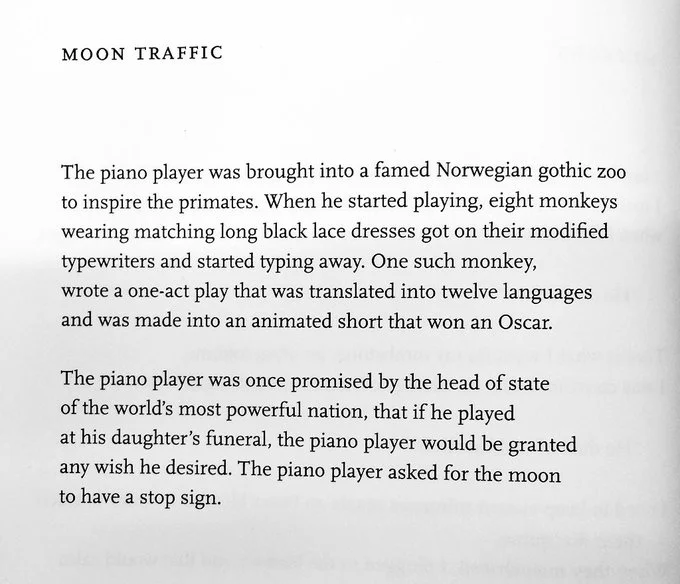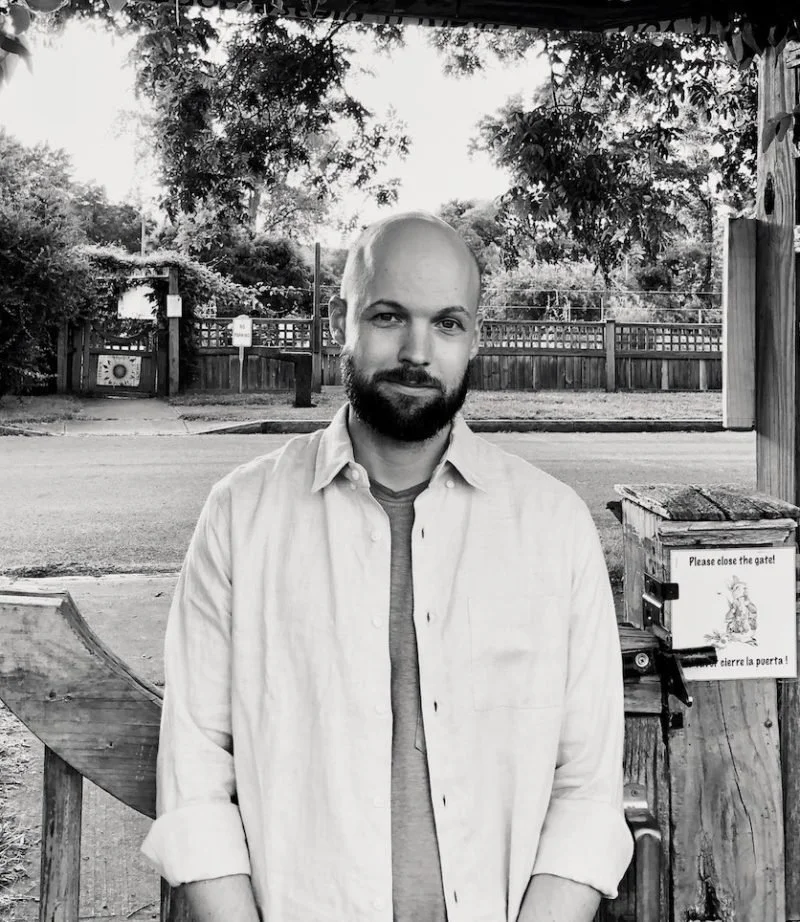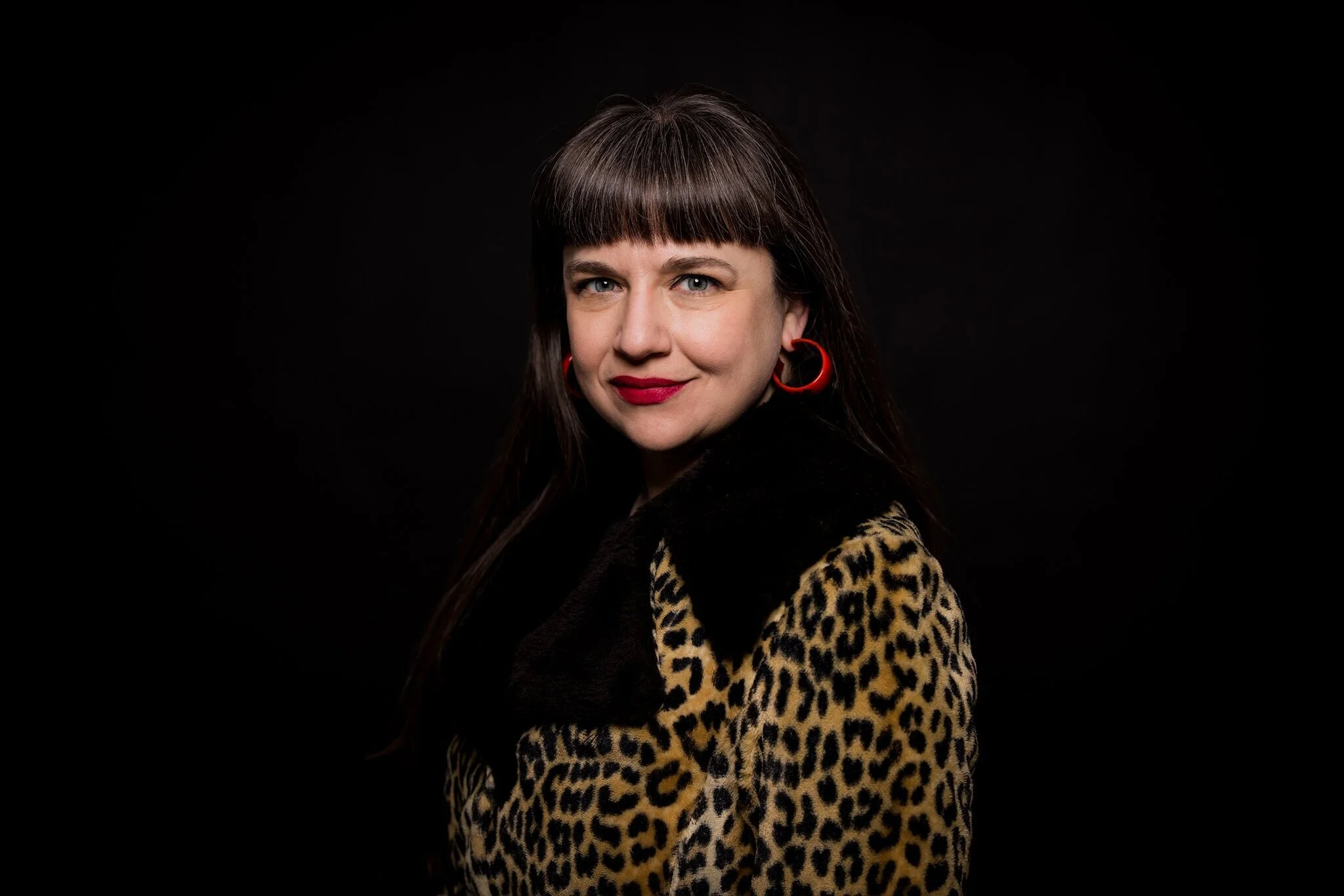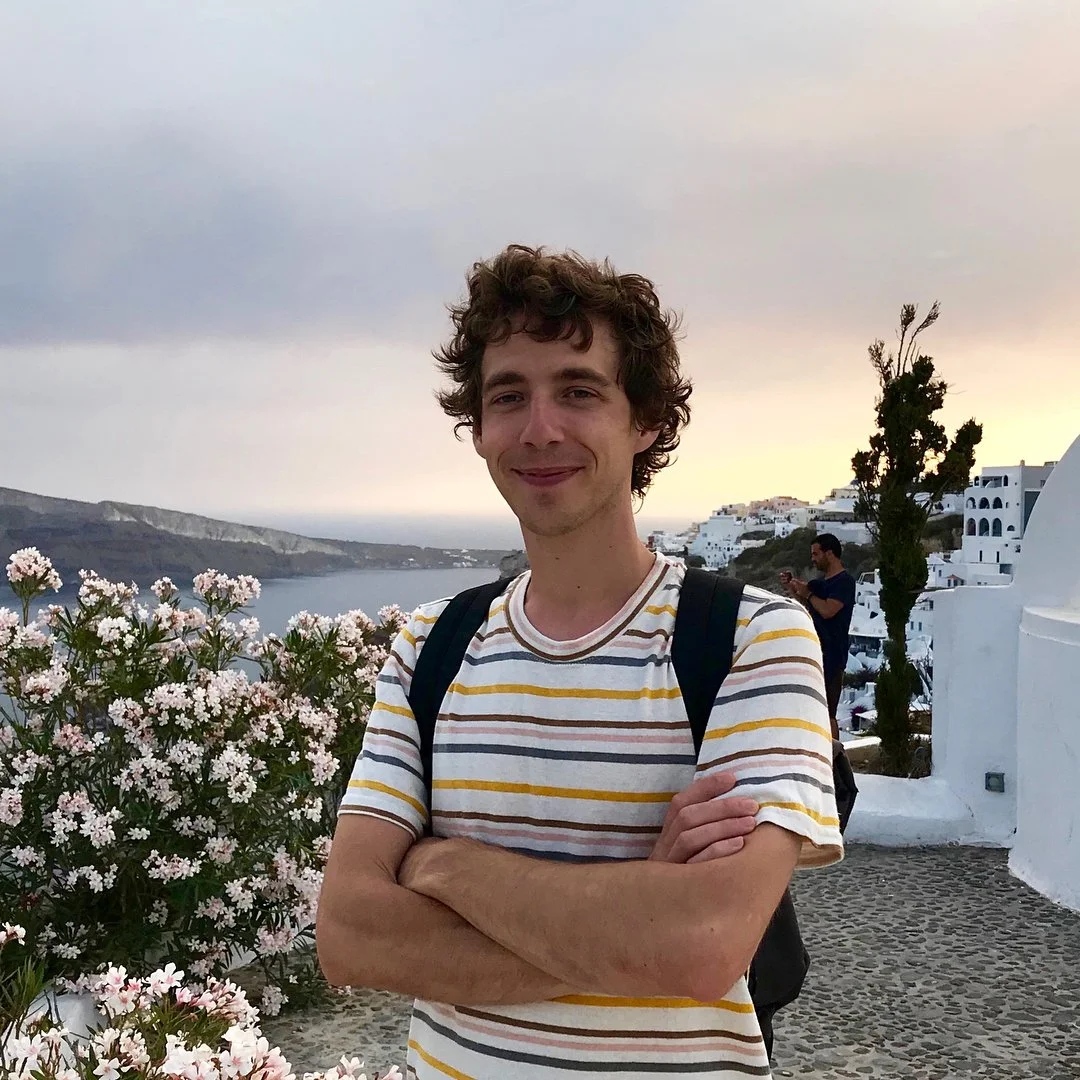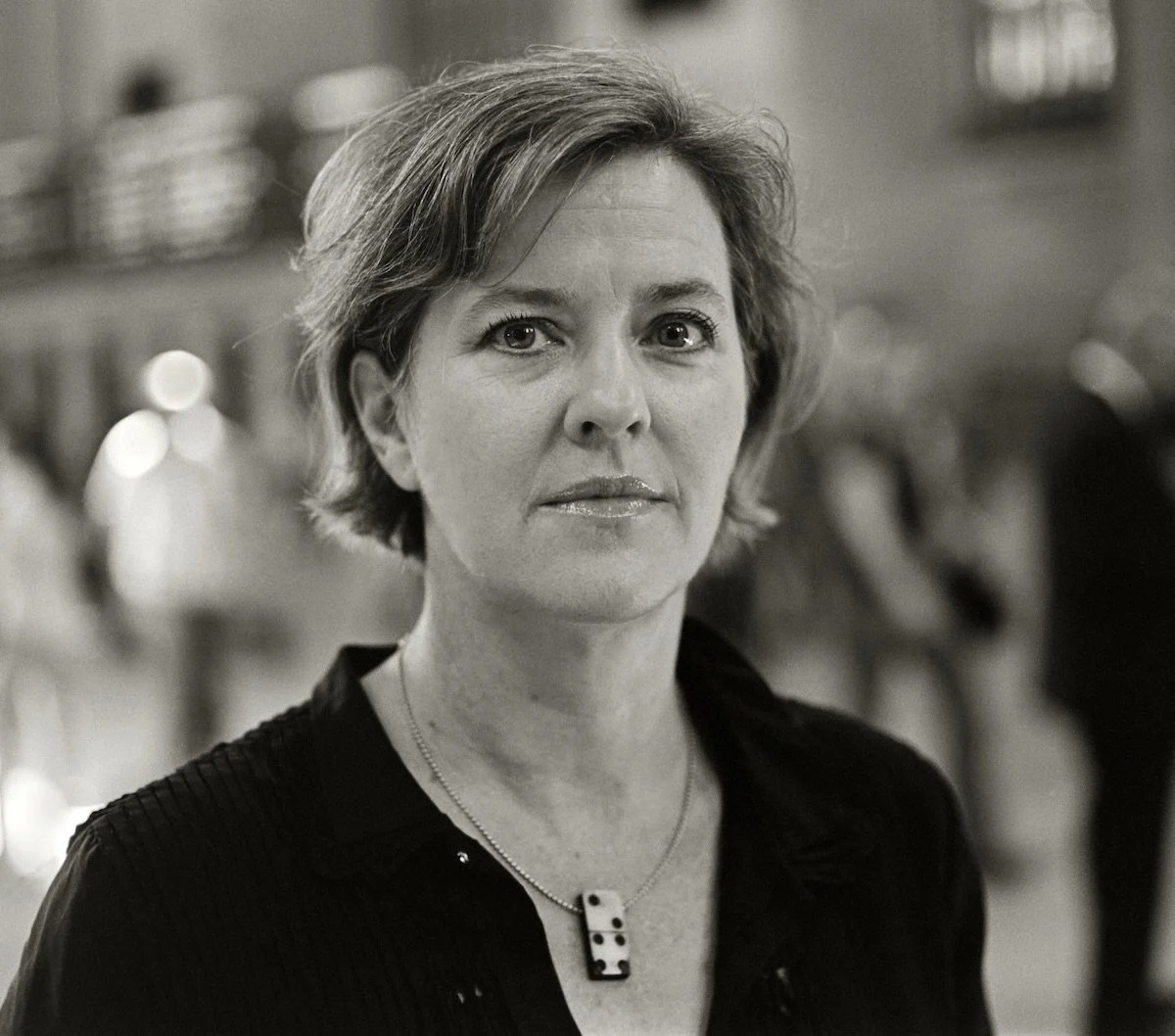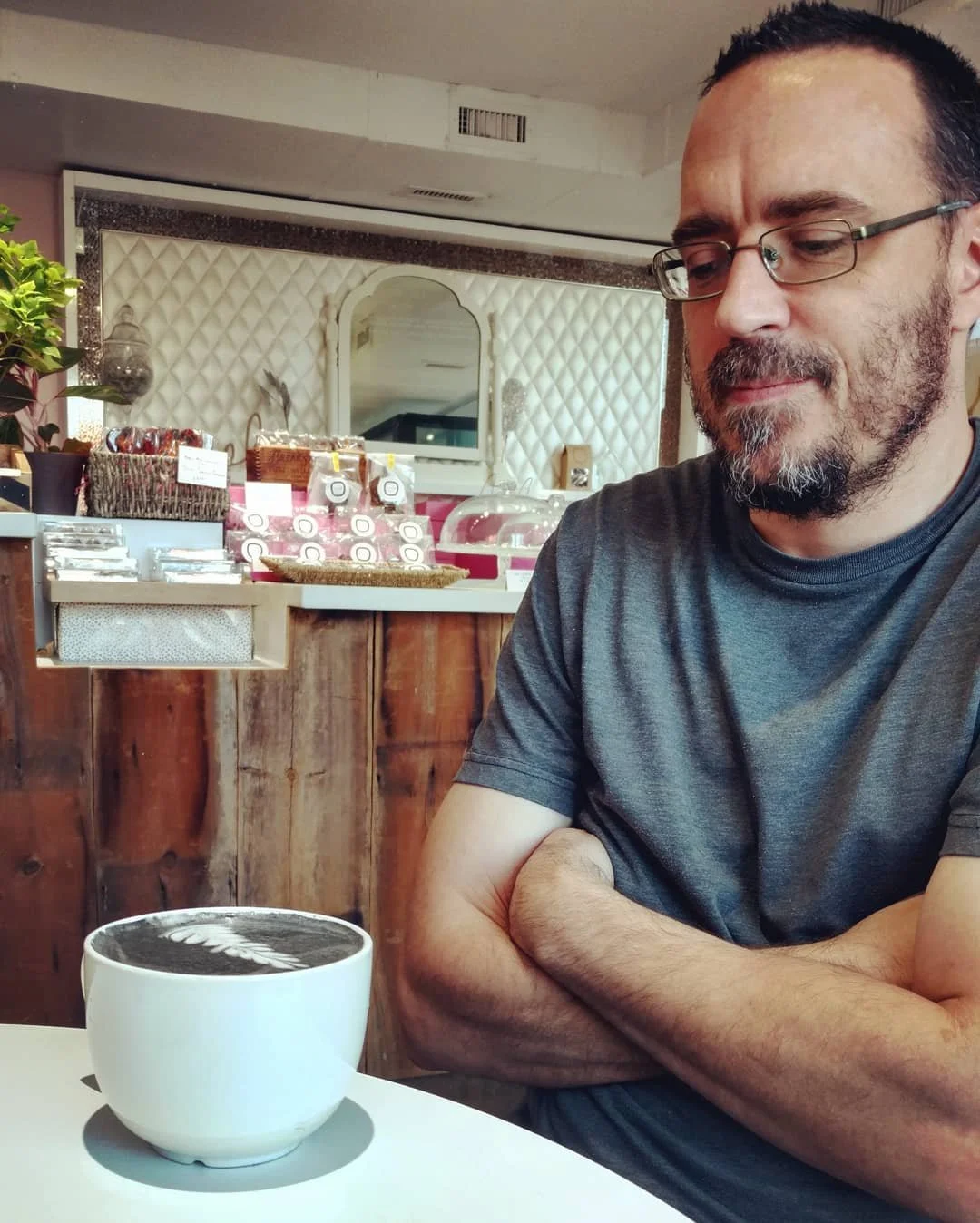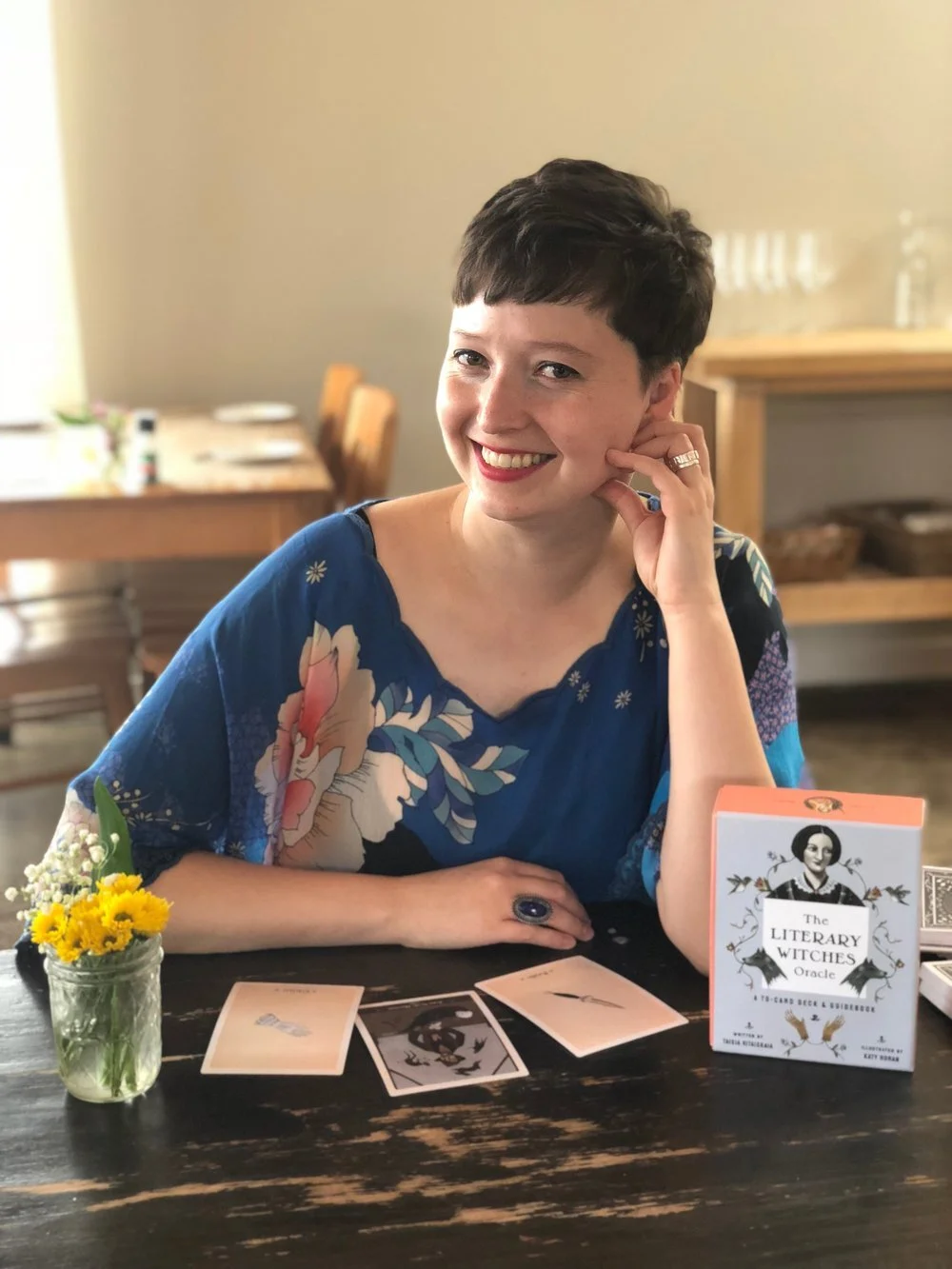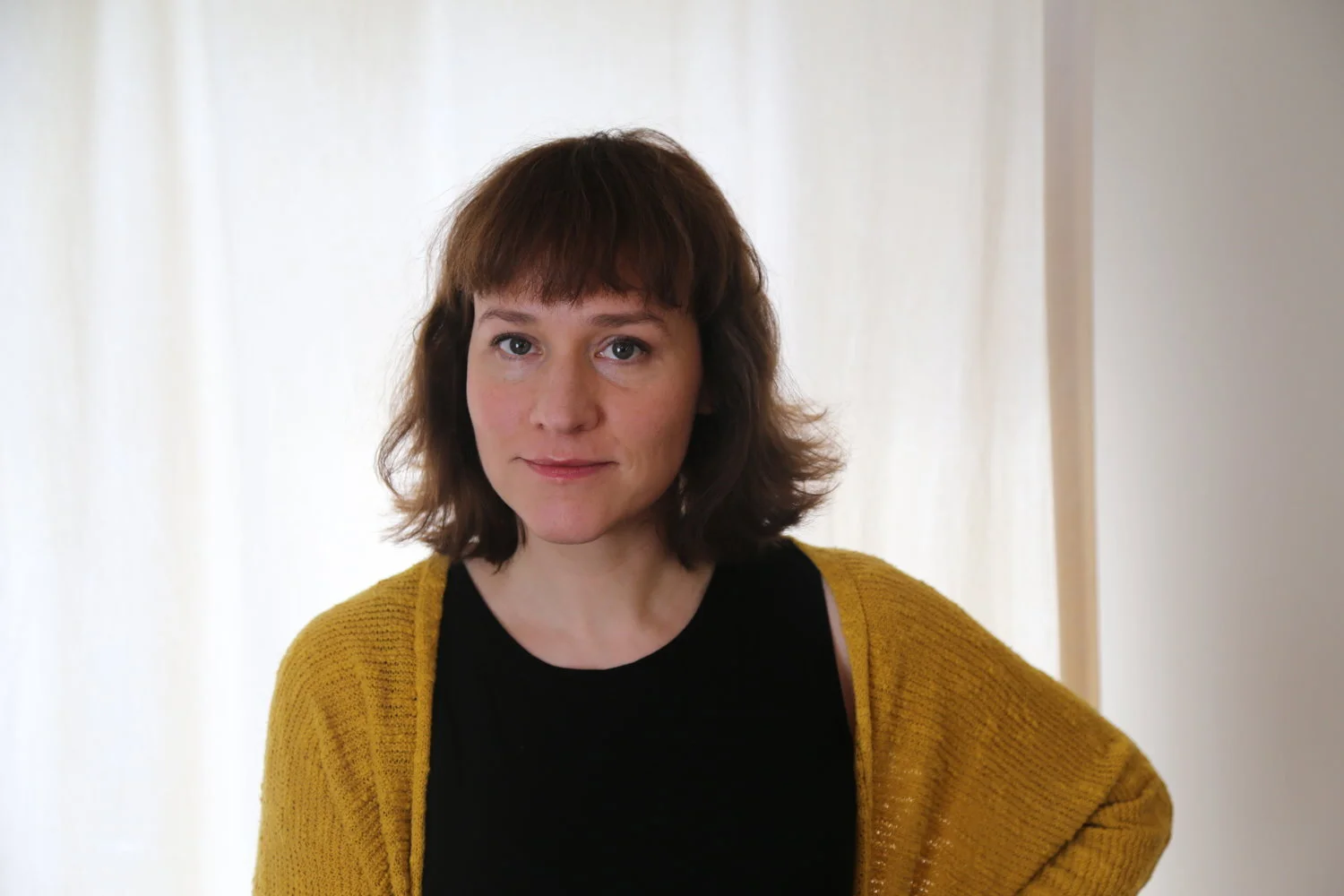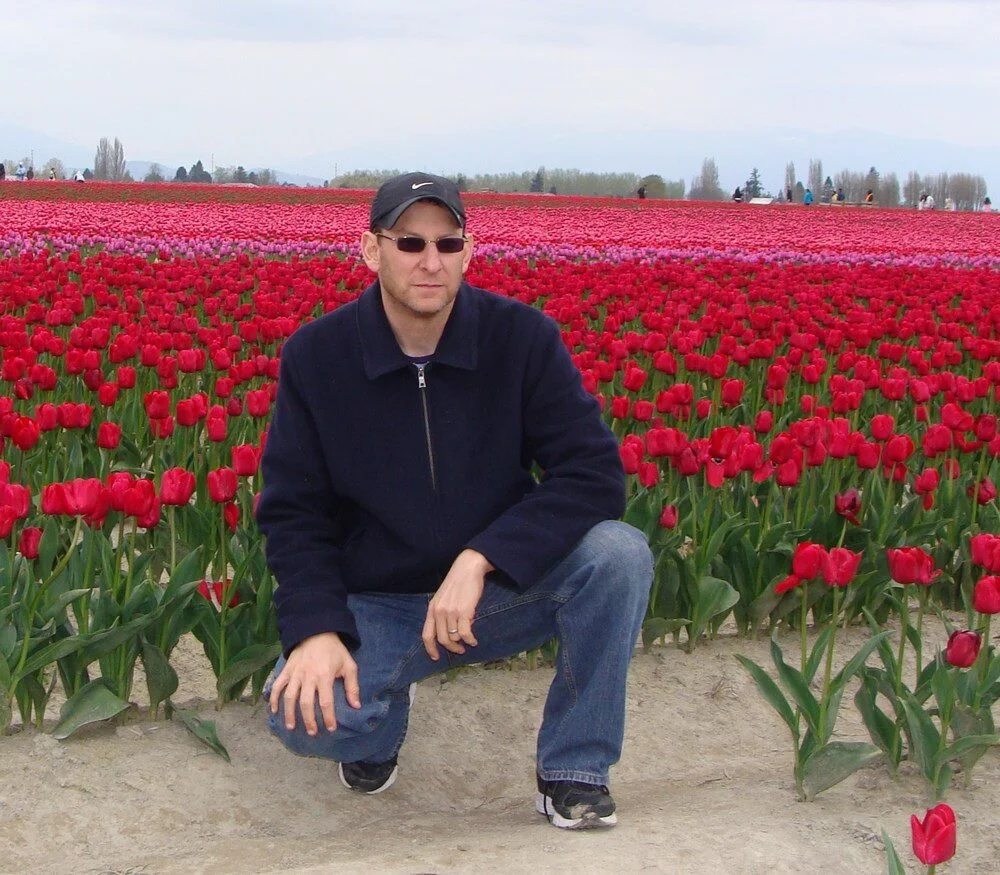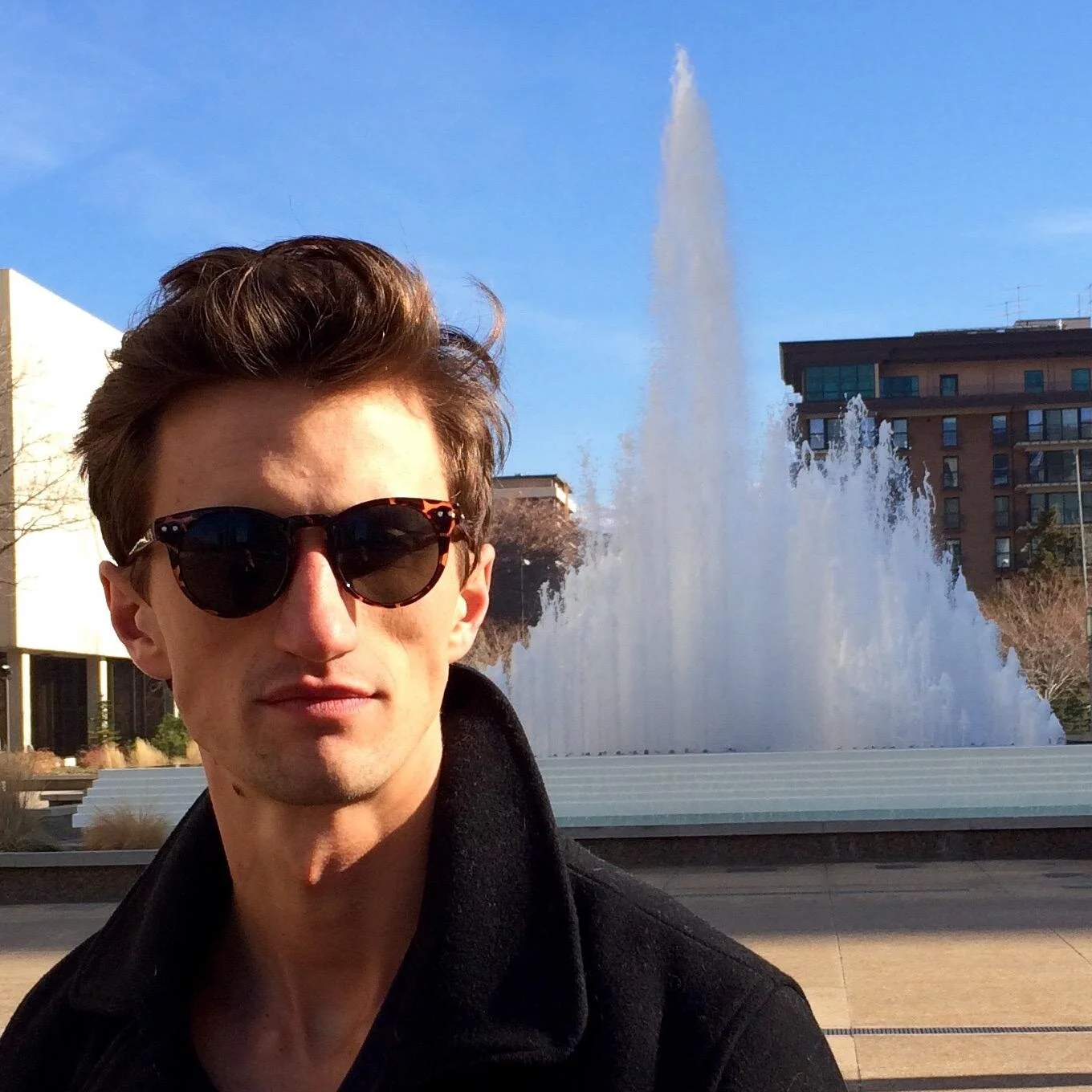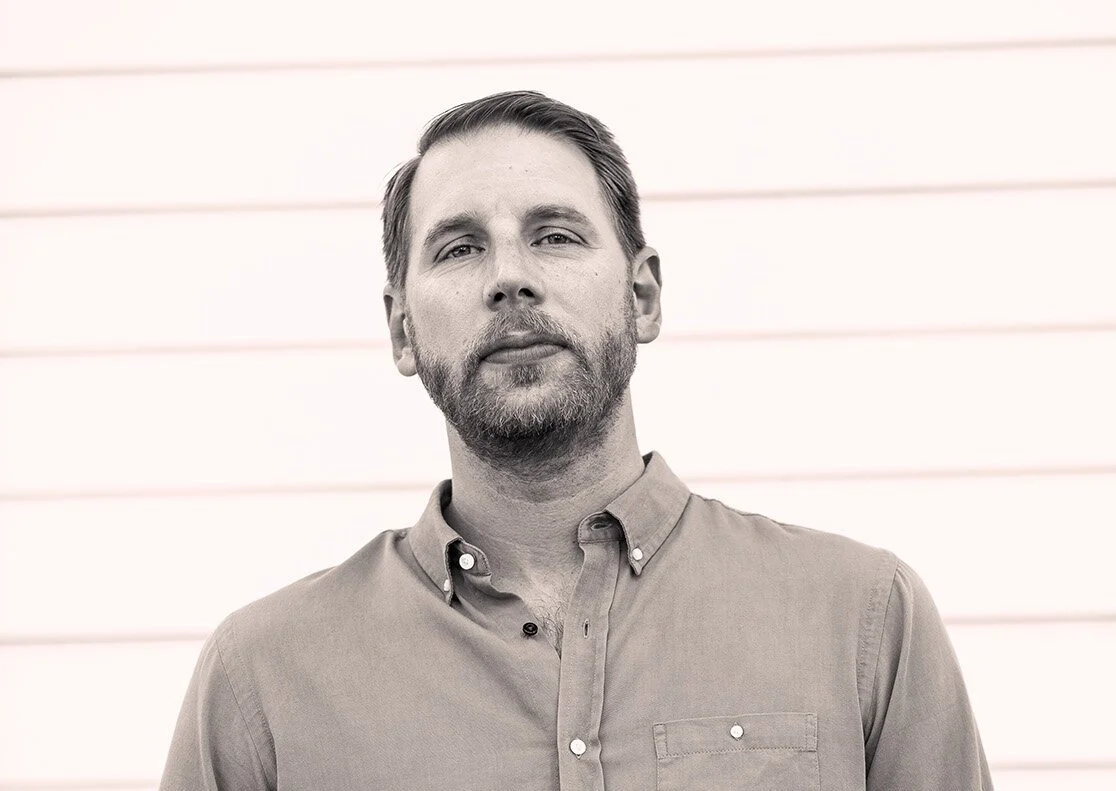Steve Castro is a poet and editor who was born in Costa Rica and now resides in Southern Indiana. Back in May, he released his debut collection of poetry, Blue Whale Phenomena, through Otis Books. The collection is a sprawling and comprehensive work dancing between surrealist fables and autobiographical snapshots in both English and Spanish. The documentarian pondering the speculative. Like flipping through a stack of postcards and finding both your elementary school and the moon. I spoke with the two time Pushcart nominee via email to talk about his new book, extended travel, anime, his children’s poetry collection in the works, and much more.
Let's begin with an icebreaker. If you could write a collaborative surrealist poem with any poet (living or dead), who would it be and why?
Edgar Allan Poe (1809-1849). It may seem ironic that I want to work with a poet because I’m such a huge fan of their short stories, but so it is. I’m a huge fan of Poe’s short fiction, e.g., “The Cask of Amontillado,” “The Pit and the Pendulum,” “The Tell-Tale Heart,” etc. I feel a Poe-Castro collaboration would murder an entire house of poems. I planned on reading five of his short stories in order to give you a more specific answer that’s fresh on my mind as to why Poe, since it has been forever since I read Poe, but after finishing the first short story in my lineup, i.e., “The Angel of the Odd,” I knew exactly why. “The Angel of the Odd” has everything. It’s eerie, erudite, surreal, humorous, absurd. It also plays with your mind. Plus, how cool would it be to collaborate with a poet who had an NFL team named after one of his poems, i.e., “Baltimore Ravens.”
You recently released your debut collection, congratulations! How does it feel? What does the title mean to you?
Thank you, Ben. I look forward to your first full-length poetry collection. It feels good. I’m a surrealist poet, a Latinx one at that, so I wasn’t sure if Blue Whale Phenomena was going to get published in my lifetime. I remember reading online, i.e., a Double Room interview Mark Tursi (Issue #4 Spring/Summer 2004) conducted with the surrealist poet, Russell Edson. Mark Tursi wrote, “There are a lot of other poets, students, and literary-types that read your work, and perhaps even more writers today who are clearly influenced by your work. Yet, you are still largely marginalized by the wider academic and literary community, and often not included in the so-called canon.” I feel Mark Tursi’s words are still relevant today.
I do feel a great sense of relief because I had a number of fellow poets tell me that my book was getting published for sure. I also had loved ones continually asking when my book was coming out. So, there is this great relief of pressure due to the expectations that others had of me in my poetry book getting published.
Personally, I was at peace if Blue Whale Phenomena didn’t get published in my lifetime, because I was 100% certain it was going to get published after I died. I actually felt there was a good chance BWP wasn’t going to get published until after I died tbh.
My penultimate poem in my collection is titled “The Blue Whale Phenomenon.” My book’s title is based on that poem. The reason my title is plural as opposed to singular is because I have multiple (four) poems regarding strange phenomena dealing with blue whales, i.e., “The Wake,” “26 January 2004,” “Scrapers of the Sky.”
What was the process like for this collection? How old is the oldest poem and how young is the most recent poem?
Blue Whale Phenomena was my thesis project in graduate school. My poetry mentors and thesis advisers, Kyle Dargan and David Keplinger, were very supportive. I was told to just put what I felt were my best poems together and turn that in as my thesis. That was crucial in getting BWP published. Normally, one has to submit a thesis MS that is based on work strictly written during the time spent in the program. By allowing me the free rein to include poems I had written prior to attending American University, I was able to get helpful commentary and advice on a large number of poems normally not eligible to be workshopped. That was a huge help since I had already been writing poetry for six years before I enrolled into my M.F.A. program. I feel so blessed to have had two thesis advisers who possess such brilliant and beautiful minds.
My journey into poetry is strange. From 2002 to 2006, I wrote a little over 100 children poems. Every single poem I wrote during those years rhymed, and most were very short. I remember devouring a book by the poet Ogden Nash during a summer stay in NYC in 2001. His poems were short, rhymed and were funny. Ogden Nash is one of my early influences as a poet.
In 2007, I decided to become a poet. I started telling people I was a poet. I started writing poetry that didn’t rhyme. To answer your second question, BWP includes two poems that were originally written for my children poem collection, i.e., “Greed” and “Writer’s Block.” Of course, both of the aforementioned poems rhyme because I only wrote poems that rhymed from 2002 to 2006. I believe “Greed” was written in 2002. “Writer’s Block” sometime between 2003-2007.
Every other poem besides my two aforementioned poems included in BWP, I wrote between 2007 and 2018. My poem “The consuming fire,” written circa 2007, included in BWP, is one of the first two poems I wrote that didn’t rhyme. My poem “¡Imagínate!” published in DIAGRAM, written in 2018, is one of the latest poems I wrote included in BWP.
via DIAGRAM
Blue Whale Phenomena contains nearly 100 poems, which is a bit lengthier than the standard debut collection. What made you choose these particular poems? Did others you wanted to include get cut?
I wanted to include a few (three) poems that I originally wrote in Spanish and my English translation of those poems. Otis Books allowed translations. Plus, Otis Books allowed a much longer poem length than a number of other presses. I felt being restricted to 48, 60 or even 80 poems handcuffed my ability to show my “poetic range” as David Keplinger wrote in my jacket note for Blue Whale Phenomena. The nearly hundred poems were my culmination of my favorite pieces since I first started writing poetry.
I’m incredibly grateful to Guy Bennett, Editorial Director at Otis Books. He believed in my vision for Blue Whale Phenomena. Guy allowed me to withdraw two poems from the collection I wanted omitted. He also allowed me to include three poems that were not in the original manuscript. He basically gave me free rein do what I wanted to do. He called me and we spoke for an hour about edits and life. Prior to his phone call, I had read his book, Self-Evident Poems, also from Otis Books, which I loved, so I trusted and welcomed his editorial advice. I’m a fan of Guy Bennett’s poetry.
I feel we both had a mutual admiration and respect for each other as poets. There was no ego between us. No push or pull. He trusted my voice. I trusted his. We believed and respected each other greatly as creative thinkers. Every editing advice he suggested, I accepted and vice versa. It was such a joy to work with Guy and everyone at Otis Books.
To answer your second question in detail, there were two poems that I originally submitted to Otis Books that I withdrew from inclusion in Blue Whale Phenomena, i.e., “Mother” and “Two Unique Souls.” My poem “Mother” is forthcoming in Water~Stone Review. I withdrew “Mother” because I felt it would be the perfect opening poem for my second collection, which is in its infancy.
I decided to exclude “Two Unique Souls” because my protagonist has almost identical superpowers to the protagonist Rat in the cult-classic anime Juni Taisen: Zodiac War by NisiOisiN. I love that poem, but I didn’t want it to be a distraction, i.e., have people ask if “Two Unique Souls” was inspired by Juni Taisen.
I will say that “Two Unique Souls” was published first. The anime came out on October 3rd, 2017 after my poem was already published in Latin@ Rising: An Anthology of Latin@ Science Fiction & Fantasy. The manga was first published in Japan on January 8th, 2015 before the anthology came out. Lucky for me, I submitted “Two Unique Souls” for consideration to Matthew David Goodwin via e-mail on October 25th, 2014 before the manga came out in Japan. So, I have solid proof I wrote “Two Unique Souls” before Juni Taisen: Zodiac War first came out in Japan. Great minds think alike, it is said.
Now that Blue Whale Phenomena is out in the world, what are you currently working on?
BWP was actually the second book I completed. The first book I finished was a children’s poetry book called Poems for genius children with dictionaries who like to read and ponder, and also poems for brave children who aren’t afraid of the dark. Yikes, that’s a very long title for a children’s book. After I finished my children’s book, I put it away and told myself I wouldn’t try to edit and/or revise it or try to get it published until after Blue Whale Phenomena got published. I now can edit, revise it and try to get it published. If you know of any illustrators that you can put me in touch with Ben, please let me know. Thanks.
I’m also very slowly putting poems together for my second full-length poetry MS. It’s in its infancy. I’m hoping in three years to five years, I can start sending it out.
Your collection finely blends autobiographical anecdotes with surrealist fables. Were these two styles prominent in your work when you first started writing? What's your relationship with surrealism?
Yes, my two styles were prominent in my work from the very beginning. When I returned to IU (Indiana University-Bloomington) for my second degree in 2007 to get a B.A. in Germanic Studies, I started taking creative writing poetry workshops for the first time. I ended up taking four poetry workshops by the time I graduated. The last poetry workshop I ever took at IU was a documentary creative writing poetry workshop with Catherine Bowman. Some of my very early poems where documentary poems. The first poem that I wrote in my first ever poetry workshop with Christopher Citro, “Heaven and Earth,” was a speculative poem, so there has always been this blend of documentary and speculative poetry within me. Since I began writing poetry, I have written in both styles. Before I started taking poetry workshops, I had already lived and/or visited four continents: Africa, Asia, Europe and the Americas, so I had all of these diverse life experiences that I wanted to someday write down as documentary poems.
My relationship with the speculative, i.e., surrealism, absurdism, magical realism, fables, fantasy, etc. was a major part of my life from an early age. Growing up in Costa Rica, our elders would tell us children various Latin American folktales such as La Llorona, a woman who drowns her children and spends eternity near rivers looking for them. I also remember a number of other magic and horror filled stories such the one about a demon who picked up a child by his hair because he kept misbehaving. The demon dropped the child from a great height, and the child was scorched when he landed. The child died of course.
As a child in Costa Rica, I was also heavily influenced by television. I would watch TV shows like Manimal. The protagonist had the ability to transform into any type of animal. I would also watch Ultraman, where a normal human would transform into a giant and fight Godzilla sized monster. TV shows and cartoons filled with fantasy, magic, absurdity and surrealism, such as The Smurfs, Thundercats, Care Bears, My Little Pony, El Chapulín Colorado and Odisea Burbujas played a great part in developing my imagination. My childhood was heavily influenced by creative minds from Japan, Mexico and The United States, which is where the shows mentioned above originated.
When I arrived in the United States, I couldn’t speak English. I learned English at school, but when I got home, we had cable, I remember watching three movies over and over again that also helped me learn English, i.e., Robocop, Masters of the Universe and Howard the Duck. Those three films have elements of the surreal, the absurd, and are heavily based on fantasy, fables, magic and in Robocop’s case, science-fiction.
via Verse Daily
Picking one of the poems from your book at random (no cheating!), can you please talk about this particular poem? What's its backstory, what does it mean to you?
My mother was talking to my grandmother on WhatsApp, so I asked my grandma (in Spanish of course) to choose a number between 11 and 125. My first poem begins on page eleven and my last poem ends on page one-hundred and twenty-five. My grandma chose seventy-one. My poem on page 71 is “Fireproof.”
The backstory for this poem is to have the reader focus on the idea behind how the human body is the perfect machine. The human body like all machines, eventually breaks down over time. Many believe that the human soul separates from the body after death, and that the soul is eternal. I wanted to introduce a soul that is ephemeral, i.e., “A bird with a mechanical soul.”
Along with writing, you also help to edit decomP. How has being an editor impacted your writing, and how different are the two writer roles?
My first ever poetry mentor and my friend, Christopher Citro, invited me to take his old post as assistant poetry editor, when he became decomP’s poetry editor. He recommended me to decomP’s Editor-in-Chief, Jason Jordan, who was kind enough to accept. Christopher mentioned this in a The Missouri Review podcast, so I’ll repeat it. We split the poetry submissions evenly between us. He reads half of the submissions and I read the other half.
I love that I’m always introduced to new voices, e.g., decomP is how I discovered the work of Paige Lewis. I recommended their poem “Magic Show” for publication at decomP.
Being an editor impacts my writing in that I’m always reading work by my contemporaries, which is necessary. I love reading dead poets/writers, and books written five, ten, twenty, fifty, one-hundred years ago, etc., but it’s important to keep a pulse on contemporary poetry; decomP affords me the opportunity to do so.
The roles of editor and writer are different in that in my role as editor, I help to promote and champion the work of others. As a writer, I champion my own work. Being an editor also has helped me to become more empathic toward other poets/writers. I really feel bad rejecting the work of other poets. It’s not a good feeling.
via 100 Word Story
Outside of your own work, who/what have you been reading recently?
Regarding books, I just started a poetry book, more like tome, by my fellow Otis Books author, Mostafa Nissabouri: For an Ineffable Metrics of the Desert (2018). I recently finished In Montgomery and Other Poems (2003) by Gwendolyn Brooks; The Devil’s Garden (2003) by Adrian Matejka. Another City (2018) by David Keplinger. Virgin (2018) by Analicia Sotelo; Faithful and Virtuous Night (2014) by Louise Glück.
Besides Nissabouri, I’m also at the halfway mark with two books, Drift (2018) by Chris Campanioni and Creative Quest (2018) by Questlove. I’m also reading Franz Kafka’s The Metamorphosis (Die Verwandlung) in German. I‘m 11 pages from finishing the book. I average about 10/15 minutes per page. I’m also reading Francisco Aragón’s His Tongue a Swath of Sky, (2019). I also recently read a graphic novel that I recommend to you, i.e., The Magic Order (2019). It’s a graphic novel collaboration between Image Comics and Netflix.
Regarding audiobooks, I just finished Ursula K. Le Guin’s The Earthsea Trilogy, i.e., A Wizard of Earthsea (1968); The Tombs of Atuan (1971); The Farthest Shore (1972).
I also binge on anime. Here are a few of my favorites, Hunter x Hunter (2011); Cowboy Bebop; Death Note; Naruto. I still need to finish Shippuden. I’m on like episode 386.
If you can, provide a photo of your workspace or describe with words. What are some essentials while you write?
Phife Dawg (1970-2106) in the A Tribe Called Quest record “Phony Rappers” rapped, “that’s when I proceeded / to give him what he needed / talking about ‘I need a Phillie right before I get loose’ / Poor excuse, money please, I get loose off of orange juice.” R.I.P. I agree. I feel that I can write a poem I love while drinking orange juice equally as good, if not better, as I can while drinking champagne. I can write under any circumstance. I’ve written poems while at work, on a bus, while taking a bath, on an airplane. I’ll write anywhere. I do believe in preference, and I prefer to write poems horizontally, i.e., lying down. My two preferred methods are writing with a pen and pad or with a laptop on Microsoft Word. I want to eventually try writing poems on a typewriter.
I attach a photograph of my laptop, where I wrote my [neonpajamas] interview answers, because it’s where I transcribe the poems I originally wrote on paper, and where I sometimes write my poems first on Microsoft Word.
For this ongoing author interview series, I'm asking for everyone to present a writing prompt. It can be as abstract or as concrete as you choose.
Write an ekphrastic poem based on a work of art that you have created yourself, e.g., a collage solely using National Geographic magazines that were once owned by a reclusive clockmaker, or write an ekphrastic poem about the ceramic ashtray that you made in grade school that has since been broken and re-glued eighteen times by your significant other. You could even write an ekphrastic poem on the Castle Grayskull image printed on the 1,000-puzzle piece you put together and framed last year with the help of that Phasmophobic ghost you first met in Henderson, Kentucky, that now sleeps under the tongue of the largest hyena in your local zoo. The possibilities are endless.
In closing, do you have any advice for writers trying to grow? Or rather, what's something you would have like to have known when you first started writing?
My advice to writers trying to grow. Be patient. I have been writing poetry at a serious pace since 2007. and I just now published Blue Whale Phenomena in 2019. It took me twelve years, which leads to my next piece of advice, i.e., don’t ever give up. Also, don’t write based on popular trends trying to get published. If the poetry is good, it doesn’t matter what you write about. Matthew Olzmann in his [neonpajamas] interview said as much, “There are boring poems about space travel, death, and angels descending upon the Earth. There are wonderful poems about insects, last night’s leftover casserole, and clouds.” Also, look at decomP. Christopher Citro and I are both surrealist poets, yet there’s so much work we publish that is not in the speculative vein.
Be grateful. If you are walking down the street and you see a fellow poet driving by in a brand-new Rolls Royce, don’t be like “Why am I walking? Why are they driving a luxury vehicle?” But remember that there are a number of people who are bed-ridden, too sick to walk or who lack legs to walk and wish they could walk like you do.
I feel good writing advice is based on common sense, meaning the advice that I give, will have been given by poets and writers long dead, and it will be given once-again by poets and writers not yet born. Read widely, not just in your genre, i.e., philosophy, theology, non-fiction, screenplays, manga, graphic novels, science-fiction, pulp fiction and poetry, in all its incarnations. Read the advice given by other writers/poets interviewed in [neonpajamas] and in other literary sites you admire. The advice given in the [neonpajamas] interview by Rachel B. Glaser to “keep a small notebook to write ideas in” is great. I use a voice recorder instead, but it’s great advice regardless of how you decide to go about it.
Do other things besides reading and writing. Your work will become stale if all that you do is read and write. Paint, draw, play sports, board games, etc. Learn new languages and read books/magazines/newspapers in new languages. Garth Greenwell gave that wonderful advice in his Bennington College Commencement Speech. Check out that speech if possible.
Watch documentaries, listen to speeches and/or read autobiographies/biographies about great minds throughout history that you admire. I was recently listening to a commencement speech by my favorite actor, i.e., Denzel Washington, that he gave at Dillard University.
Something that I would have liked to know when I first started writing is not to be in a rush to get published. I feel a number of new poets/writers, I was, are impressionable and see other poets/writers getting published and there’s this “I want to be published too” moment. Focus on the writing first. Publication will eventually come as a result of your focus, hard work and dedication to your writing. Also, be selective. By that I mean, publish in literary journals where you admire the creative work being published. Don’t just throw spaghetti on the wall and hope that something sticks.
Any final thoughts / words of wisdom / shout-outs?
I didn’t include an acknowledgements page in Blue Whale Phenomena, apart from the required lit. journal publications listing, so I’m making up for it here, lol.
Shout out to you Ben for inviting me to be a part of the [neonpajamas] interview family. I’ve devoured so many of your interviews. I’ve spent hours reading them and being in awe. You have interviewed so many brilliant and genius artists/creative thinkers of various and diverse genres, e.g., music producers, poets, novelists, painters, multimedia artists, animators, etc. What a great honor to be a part of so many brilliant creative minds. It’s quite humbling.
Also, shout out to the four beautiful poets who have provided jacket notes/blurbs for Blue Whale Phenomena, i.e., Kyle Dargan, David Keplinger, Maura Stanton and Shari Wagner. The first three poets I mentioned above are poetry mentors of mine. I got love and admiration for all four of them. You can read their kind words regarding BWP here.
Shout out to my Otis Books family, especially Guy Bennet, Faizah A. Rajput, who typeset and designed BWP. And to Kyle Raymond Fitzpatrick, who provided eloquent arguments on why he believed Otis Books should publish BWP.
Shout out to Bob Hicok for nominating me for a 2019 Pushcart Prize. I’m a huge fan of his, so I was very happy when Bob e-mailed me to say he was nominating me for a Pushcart. Bob is incredibly humble and kind.
Shout out to my first ever poetry mentor and my fellow decomP editor, Christopher Citro.
Shout out to my fellow Latinx poets, Francisco Aragón and Ruben Quesada, who have helped me on my poetic journey in amazing and memorable ways. I’ll always be grateful to them, and I greatly admire their creative work and their work for social justice, and also for everything they do in the Latinx literary community.
I’m very religious, i.e., Roman Catholic, so I’m grateful to God for blessing me with my poetic gifts. I believe I was born to be a poet. Shout out to my mom, Guiselle, and the rest of my loved ones, y’all know who you are.
I also lived with my mom’s grandparents in Santa Ana, Costa Rica while my mom was away working in the United States for a couple of years, so shout out to my grandma Tita Alice and my grandpa Tito Edwin.
Also, shout out to a former professor and poetry mentor, Maurice Manning, for keeping in touch.
I’ll stop now.


